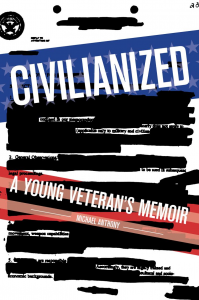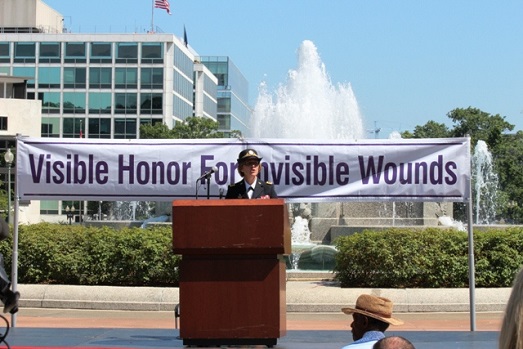PTSD is a serious condition that affects many of the veterans and soldiers coming back from war zones. Although there may be no physical signs of trauma, the condition manifests itself through mental or psychological symptoms that could negatively affect the quality of life of soldiers and veterans when they finally come home.
PTSD Causes & Symptoms
Generally speaking, PTSD is experienced by anyone who goes through a trauma, which encompasses anything shocking or scary happening to you. PTSD makes one believe as though their life and the life of others are in danger, even during safe situations. The condition causes intense fear and the feeling of helplessness, which may cause sufferers to react in an extreme way. Veterans make up a large percentage of those who suffer from PTSD although the condition is not exclusive to their class.
Alternative Therapies for PTSD
Cognitive Therapy
Cognitive therapy is a type of talk therapy wherein sufferers are given the chance to talk about their experiences in order to gain better understanding of the trauma and what they’re going through. It focuses on the negative thinking that keeps a person stuck in PTSD with the intent to solve that negative way of looking at things eventually.
Exposure Therapy
Exposure therapy is often used together with cognitive therapy. This is a process wherein you’ll be taught how to safely face situations considered to be frightening or dangerous. It involves the use of virtual reality programs that let you enter a situation where trauma took place with the intention of promoting a different set of emotions or results.
EMDR
EMDR stands for Eye Movement Desentization and Reprocessing. It focuses on eye movements and guiding such movements so that you can reprocess the memories that cause trauma. This is often used together with exposure therapy and cognitive therapy.
Brief Psychodynamic Psychotherapy
Under this therapy technique, you get to learn how to process and properly deal with any emotional conflicts cased by PTSD. The psychotherapy identifies the factors that trigger symptoms of PTSD and how you can identify and hopefully deal with them before they get worse.
Acupuncture
Acupuncture can be tricky considering that it involves pushing needles into the body. Once a veteran successfully goes through the procedure however, he’ll find that the process itself is nothing to worry about. Acupuncture stems from traditional Asian culture, which works by targeting specific stress spots in the body and releasing miniscule currents that will help an individual relax.
Meditation
It may seem awkward at first to see a veteran doing meditation, but studies show that the technique actually helps a lot in calming PTSD sufferers. The method itself is known for quieting the mind, helping individuals relax, and essentially give them a sense of peace that flourishes from within.
Group Therapy
Group therapy is also another useful technique used to help veterans with PTSD. As the name suggests, it involves talking to people who are undergoing or have undergone the same process as you. By being in the company of people who understand, those with PTSD can express themselves in the best way possible and essentially swap stories and methods that will lead them to a path of healing.
Pet Therapy
Perhaps the best alternative therapy for PTSD-sufferers today is pets or dogs specially trained to meet the needs of veterans. These dogs are specially tuned to detect any tremors or shift in the emotion of their human charges and immediately go to their side to offer comfort. In some instances, the dog may even wake up their charge who t is having a bad dream. So far, this is the most effective and highly rewarding alternative therapy for veterans with PTSD.
Video Games
A little unorthodox, studies show that video games also work as alternative treatments for PTSD. Specifically, the game Tetris is being used by doctors to study and gain results as to the positive effects of video games in hindering the symptoms of PTSD. Studies show that there’s an incredibly 70% decrease in the symptoms as the game stops the involuntary flashbacks those with PTSD have.
Family Therapy
Family therapy works much like cognitive therapy, but it requires the involvement of every person in a family. This is important since the bursts of anger and other behavioral issues a person may have during PTSD can affect everyone in the family; hence, the therapy makes it possible for the veteran to express himself and at the same time, teach every family member to understand the situation of their loved one. More importantly, family therapy teaches them on the proper way to react, ensuring that the path to recovery becomes faster and easier.
Of course, those are just few of the alternative therapies currently used by veterans suffering from PTSD. Medications are also recommended by doctors although they are often mixed with alternative therapies to increase the chances of recovery. If you or a loved one is suffering from PTSD, do not miss any of the alternative therapies mentioned above.
Civilianized: A Young Veteran’s Memoir
In this dark humored War Memoir, Iraq veteran Michael Anthony discusses his return from war and how he defeated his PTSD. Civilianized is a must read for any veteran, or anyone who knows a veteran, who has returned from war and suffered through Post-Traumatic Stress Disorder (PTSD).
“I wont soon forget this book.” -Mary Roach
“A must read.” -Colby Buzzell
“[S]mart and mordantly funny.” –Milwaukee Journal Sentinel
“Anthony delivers a dose of reality that can awaken the mind…” Bookreporter
Order your copy of Civilianized: A Young Veteran’s Memoir .

